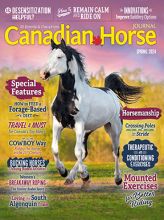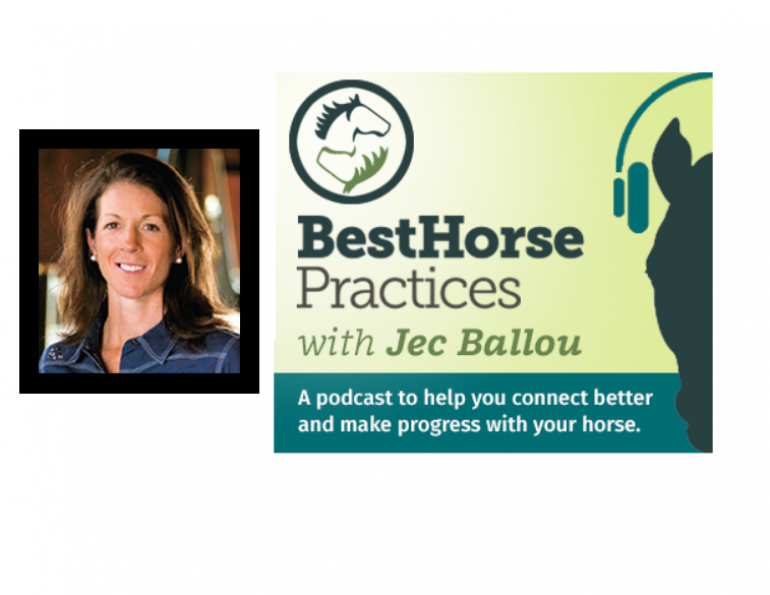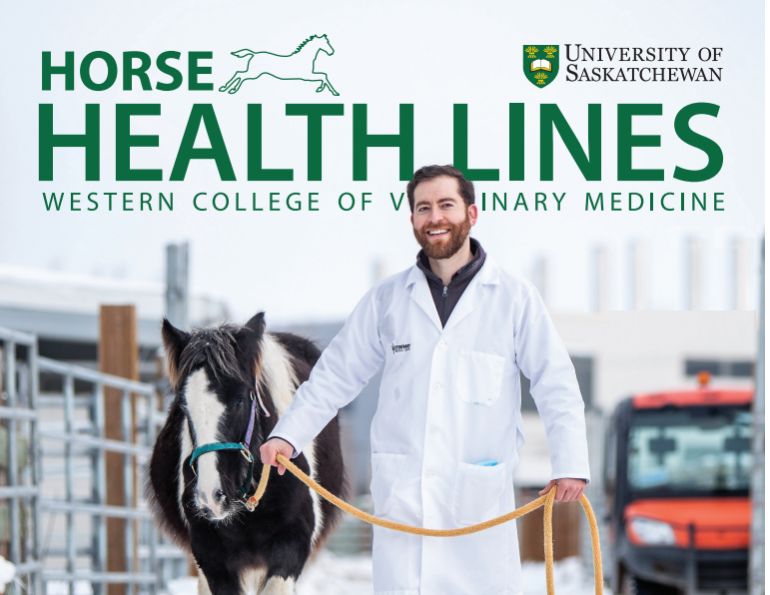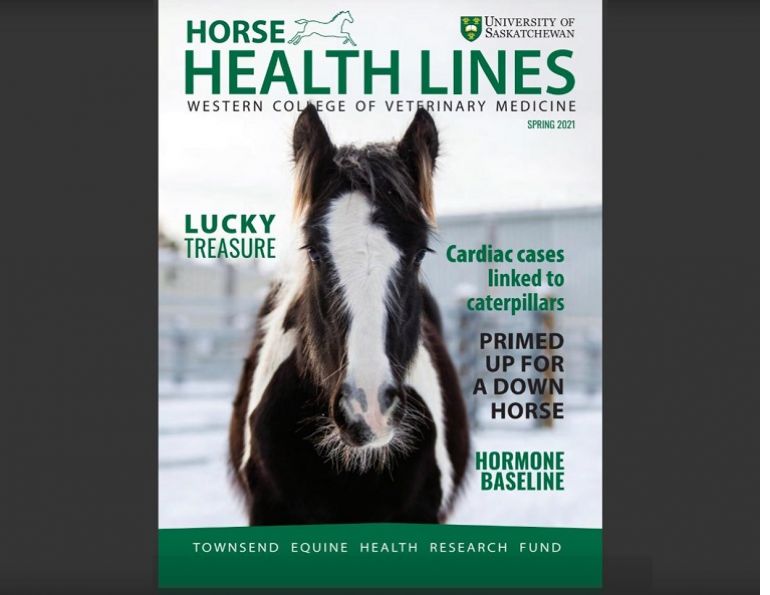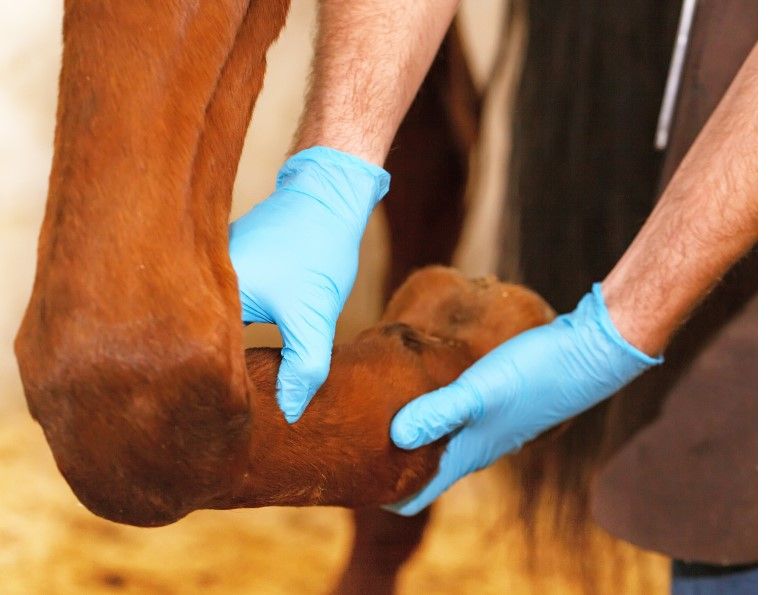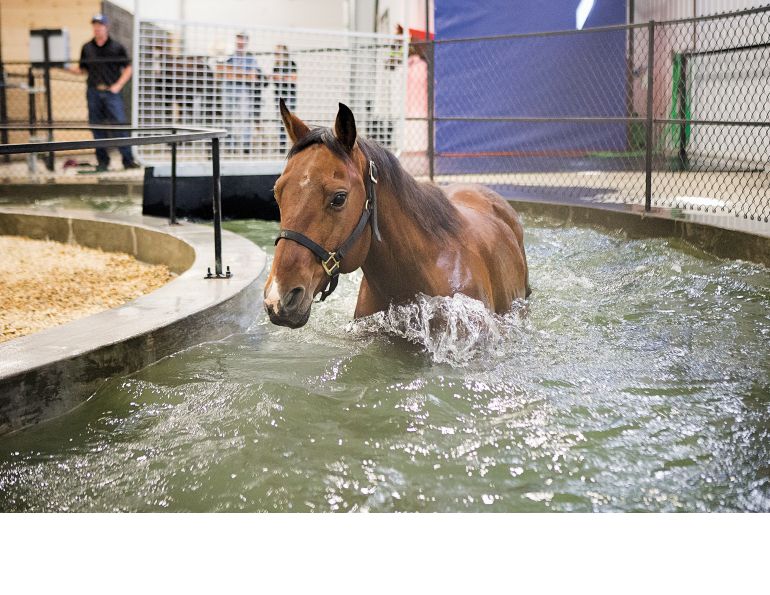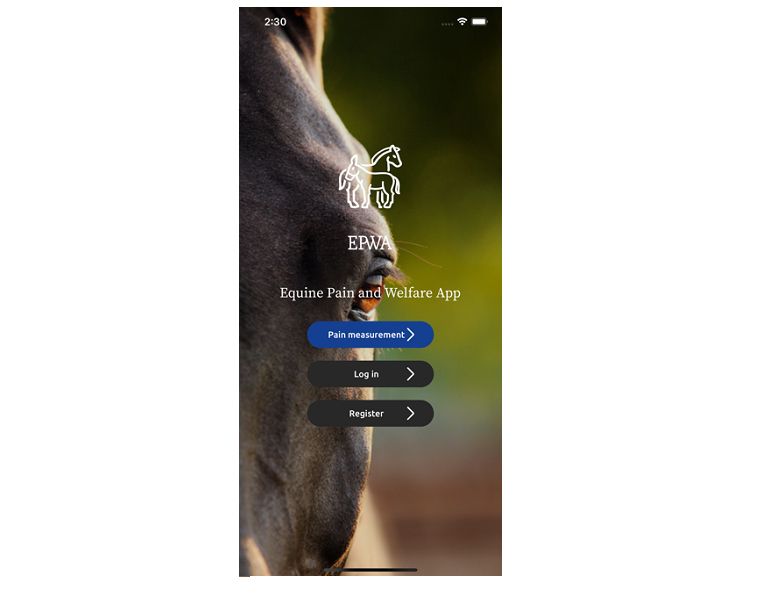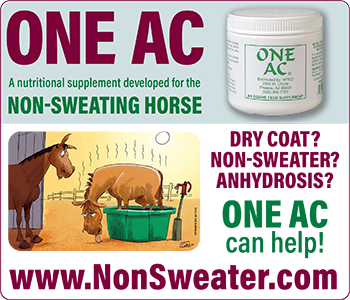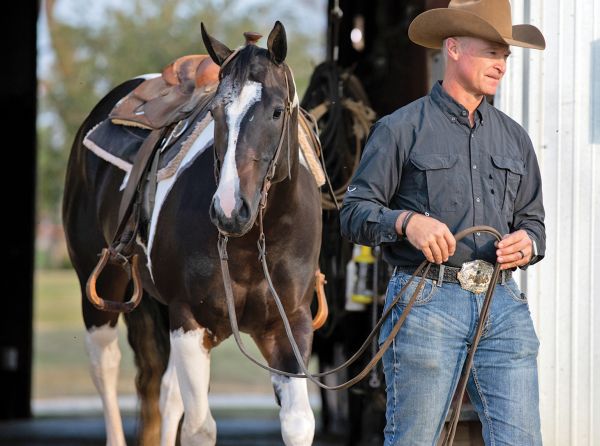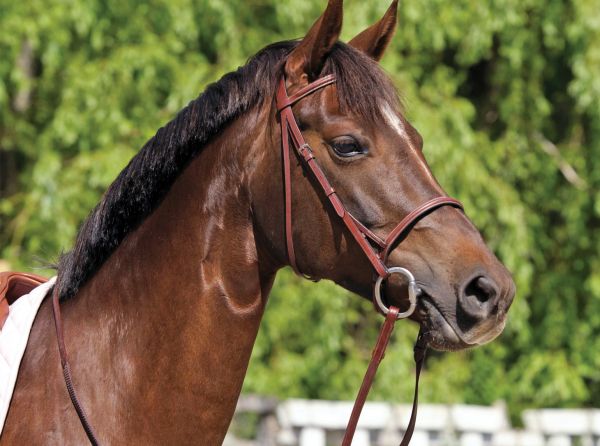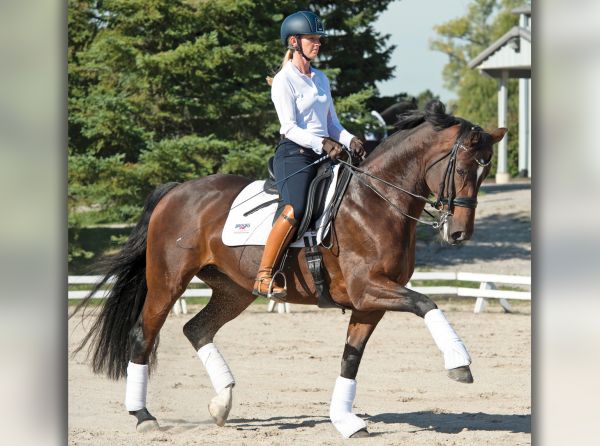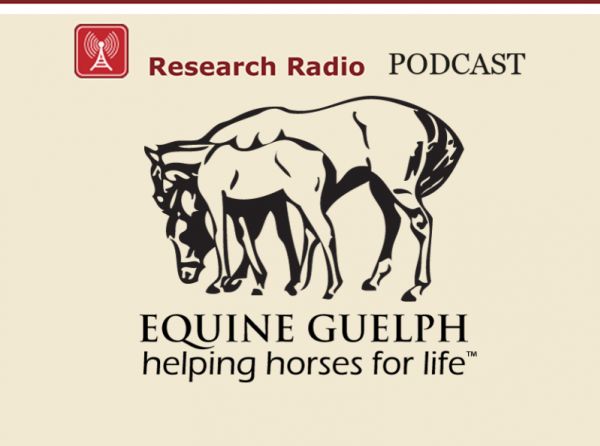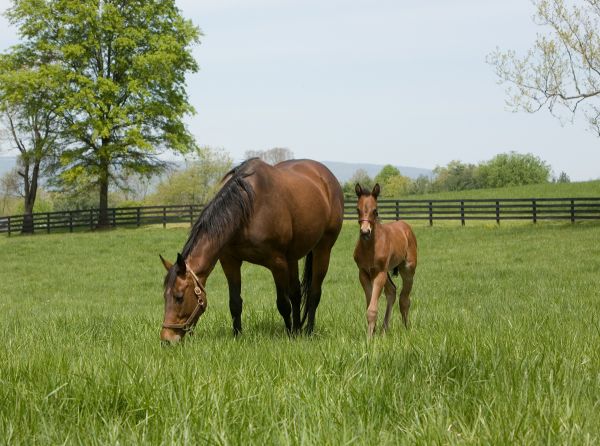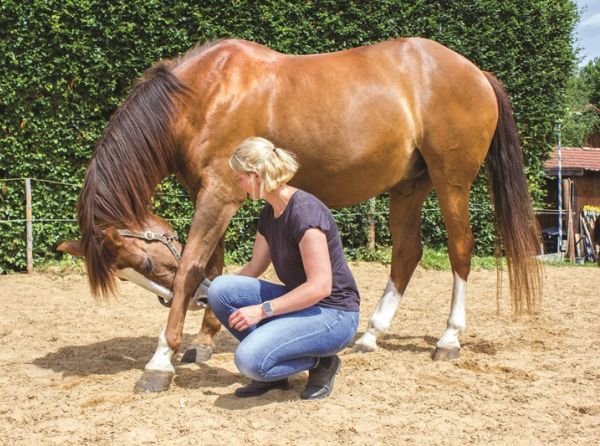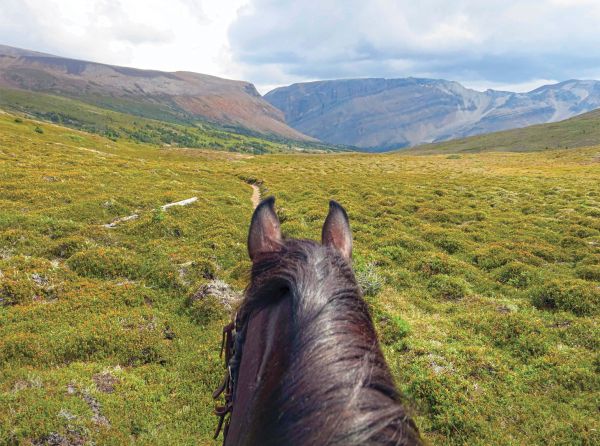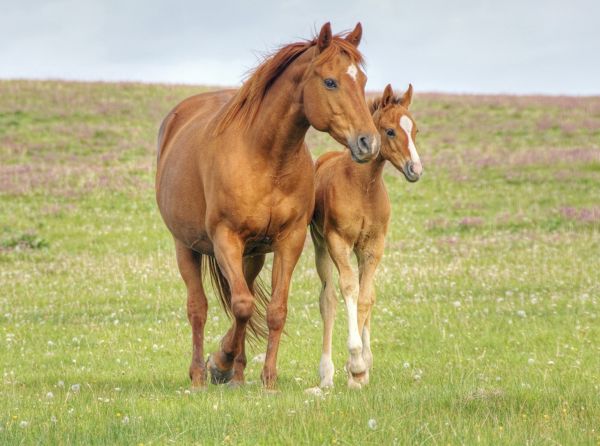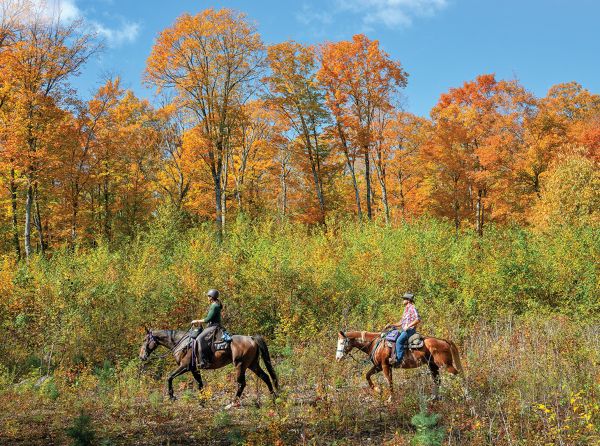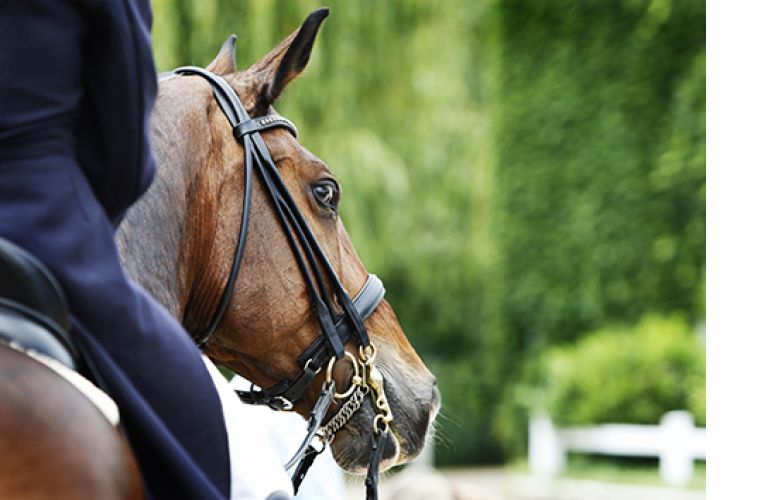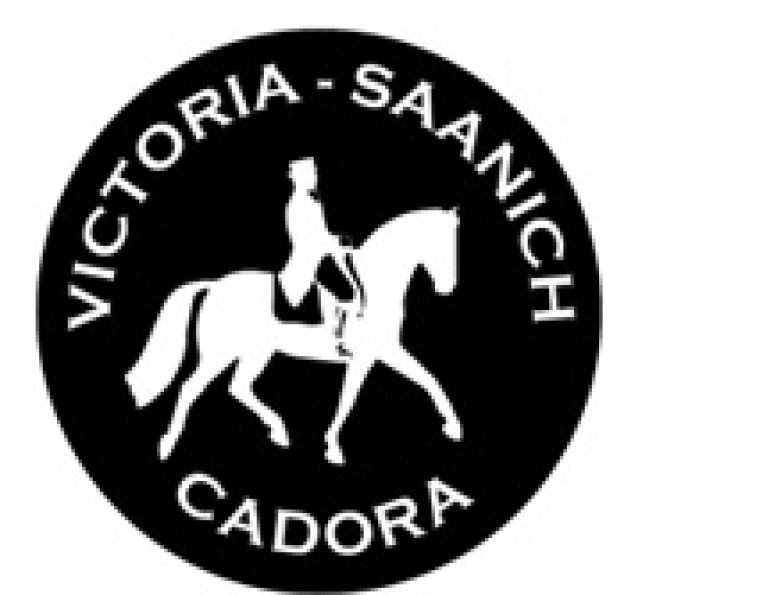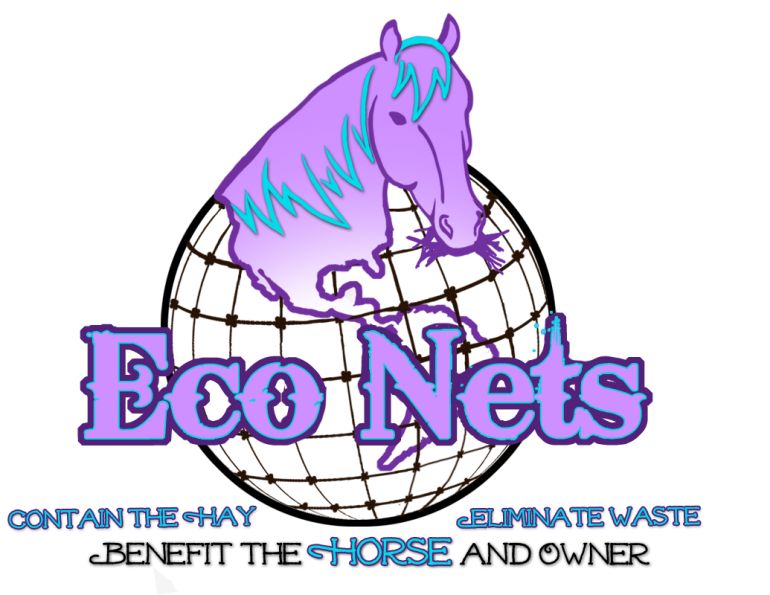By Tania Millen, BSc, MJ
Across Canada, non-veterinarians offer a potpourri of services, including massage, chiropractic, farrier work, homeopathy, and more. But these non-veterinarian service providers may be practicing veterinary medicine illegally under provincial veterinarian acts. Also, few regulatory organizations oversee non-veterinarian practitioner training, certify expertise, or offer recourse if horses suffer, and provincial veterinary organizations only pursue non-veterinarian service providers when horse owners complain. Almost anyone can call themselves a farrier, equine massage therapist, bodyworker, or other equine service provider. So, how do horse owners know who to hire without trundling down the expensive and potentially hazardous road of trial and error?
This article wades into the morass and clarifies which equine services are considered veterinary medicine across Canada, which non-veterinarians are regulated and insured, and how horse owners can decide who to hire.
Interpreting Regulations
Provincial veterinarian acts define what is considered “veterinary medicine” in each province, thereby limiting the services that non-veterinarians can provide to horses. Every act is different, and the interpretation and enforcement of each act depend on the provincial veterinary organizations (called “colleges”).
Here’s an overview:
In Eastern Canada, Quebec’s Veterinary Surgeons Act appears to be the most explicit, and it’s enforced by the Ordre des Médecins Vétérinaires du Québec (Order of Veterinarians of Quebec). The Ordre website states that the illegal practice of veterinary medicine includes “treating veterinary medical conditions using mechanical, physical, chemical, biological, or radio-therapeutic procedures,” and encourages the public to “protect themselves from charlatans.” The Quebec Ordre provides a French-language Standard of Practice document for complementary therapies including acupuncture, chiropractic, physiotherapy, and osteopathy. The document says that only veterinarians registered with the Ordre can provide complementary therapies or delegate treatment to appropriately trained individuals. Dr. Serapiglia, the Director of the Continuing Vocational Training Department at the Ordre, advised that “the practice of complementary and alternative therapies such as acupuncture, osteopathy, chiropractic, and physiotherapy, constitutes the practice of veterinary medicine.” He added that veterinarians who use these therapies are “expected to have adequate training, consider the level of scientific evidence available for the therapy, assess the safety of the therapy, obtain informed consent from the owners, and undergo continuous education.”
The College of Veterinarians of Ontario (CVO) has taken a different approach to the Quebec Ordre. Ontario’s Veterinarians Act states that veterinary medicine includes dentistry, obstetrics, and surgery, and no one other than a veterinarian may practice veterinary medicine unless under the delegation and supervision of a veterinarian. But in July 2021, CVO released a position statement on the Use of Non-Conventional Therapies in the Practice of Veterinary Medicine, which states that it is “no longer realistic” for complementary and alternative therapies to only be provided by veterinarians. CVO further states, “The current reality is that many non-veterinarians are providing non-conventional therapies as treatment and/or care, with or without veterinarian input. In most cases, the College does not consider this the practice of veterinary medicine.”

In July 2021, the College of Veterinarians of Ontario stated that it is “no longer realistic” for complementary and alternative therapies to only be provided by veterinarians. Photo: iStock/Jan-Otto
Meanwhile, New Brunswick’s Veterinarians Act and Nova Scotia’s Veterinary Medical Act appear to have similar definitions for the practice of veterinary medicine and both definitions are all-encompassing.
New Brunswick Veterinary Medical Association’s (NBVMA) Registrar Dr. Nicole Jewett says the diagnosis and treatment of any condition would be considered a veterinary act. She says that “folks doing massage therapy or chiropractic can’t be diagnosing because they’re not a veterinarian,” plus, “manipulating joints and bones is a veterinary act.” Massage therapy is not necessarily considered veterinary medicine in New Brunswick, but Jewett says the association recommends veterinary guidance for massage therapy, “especially if it’s for post-operative care or following an injury.”
Nova Scotia Veterinary Medical Association’s (NSVMA) Associate Registrar Dr. Corkum says that non-veterinarians are permitted to provide rehabilitation-type services to horses if they’re working under the supervision of a veterinarian. She adds that “It is against the Act to perform veterinary medicine without a license and a non-member could be sent a letter to clarify that they are not pursuing the practice of veterinary medicine. If they are without the supervision of a veterinarian, they would be required to stop an illegal activity.”
In contrast, Alberta’s Veterinary Profession Act appears to be the most permissive in Western Canada, allowing non-veterinarians to provide preventative and therapeutic treatments and even castrate horses. (However, the Canadian Veterinary Medical Association [CVMA] advises castration should only be conducted by a veterinarian). Alberta Veterinary Medical Association’s (AVMA) Registrar Dr. Darrell Dalton says that although the Alberta Act permits preventative and therapeutic treatments, if horse owners are treating a specific condition that has a specific diagnosis, then AVMA considers that to be veterinary medicine. He adds that the only time AVMA gets involved is when there’s a complaint from the public, saying, “We don’t have the resources to chase down every single person out there that is practicing different modalities.” Dalton also notes that more and more veterinarians and technologists are providing therapeutic services.
The Veterinarians Act in Saskatchewan appears slightly less permissive than Alberta’s Act, but still allows non-veterinarian horse castration while the Veterinary Medical Act of Manitoba seems more restrictive than Saskatchewan’s Act. Meanwhile, Yukon Chief Veterinary Officer Dr. M. VanderKop advises that, “There is no legislation governing the practice of veterinary medicine in Yukon. Veterinarians can be registered and licensed under legislation in any of the Canadian provinces or territories and are responsible to that registration body.”

The Canadian Veterinary Medical Association states that castration should only be done by a veterinarian. But some provinces, including Saskatchewan, still allow non-veterinary horse castration. Photo: Pam MacKenzie
British Columbia’s Veterinarians Act is the most stringent in Western Canada and its definition of veterinary medicine covers most equine treatments. The College of Veterinarians of British Columbia (CVBC) also provides additional guidance in their Unauthorized Practice document regarding what constitutes veterinary medicine and which activities are not permissible by anyone other than a veterinarian. It explains that unauthorized practice occurs when a non-veterinarian provides any service that is defined as veterinary medicine under the Act. The CVBC’s unauthorized practices list is extensive and includes acupuncture/acupressure, botanical medicine, chiropractic, dentistry, an extensive “general” list (including administering vaccinations and drugs), massage therapy, and physical therapy (including rehabilitation and “stimulation by low-level lasers, electrical sources, magnetic fields, and ultrasound, rehabilitation exercises, hydrotherapy, and application of heat and cold”). The CVMA supports CVBC in a position statement that asserts “complementary and/or alternative therapies and modalities constitute the practice of veterinary medicine.”
Regardless, myriad small businesses and individuals across Canada proffer services on the CVBC unauthorized practices list. Social media sites abound with people offering equine acupuncture, flower essence remedies, massage and chiropractic services, infrared and pulsed electromagnetic field (PEMF) therapy blankets, and other services. In BC and Quebec — provinces where veterinary colleges actively pursue non-veterinarians — non-veterinarian service providers risk being charged with unauthorized practice of veterinary medicine. Hence, many practitioners in these provinces were loathe to discuss their practices due to fear of reprisal from their provincial veterinary college. However, a few chose to share their experiences.
Tanya Hardy is an advanced equine sports massage and vertebral realignment therapist who works in Quebec. She says that under Quebec’s Veterinary Surgeons Act, she can’t diagnose but can soothe pain and release tension. She also notes that while newer vets seem more open to alternative medicine practices, a lack of veterinarians means it’s difficult to work in conjunction with a vet.
Related: Help Your Horse with Acupuncture

Provincial veterinary organizations across Canada interpret and enforce the veterinarian acts of their province, which define the services that non-veterinarians can provide to horses. In Yukon, however, there is no legislation governing veterinary medicine. There, veterinarians can be registered and licensed in any of the Canadian provinces or territories. Photo: Shutterstock/Jaromir Chalabala
Sidonia McIntyre offers instructional courses for equine sports massage and vertebral realignment in Ontario, Alberta, and BC through EquineRehab.ca School of Equine Massage and Rehabilitation Therapies. She says that the CVBC’s unauthorized practices document hasn’t affected her practice due to its use of the words “diagnose and treat” and how equine massage therapists don’t diagnose.
One BC practitioner agreed to discuss her situation on the condition of anonymity due to concerns about retaining her chiropractic license. She trained in the United States for eight years to become both a human chiropractor and an animal chiropractor, and is now professionally certified by the American Veterinary Chiropractic Association and the International Veterinary Chiropractic Association. Regardless, she’s unable to openly practice animal chiropractic in BC unless veterinarians delegate animal care to her. It’s an unfortunate situation, but there’s a larger issue. If horse owners can’t find a veterinarian to do chiropractic or other bodywork, and certified professional practitioners aren’t permitted under their provincial act to work on horses, then unqualified practitioners will fill the gap. That is what’s happening across Canada. It’s easy for anyone to purchase a therapeutic blanket or take a short course in a purported therapy and then sell their new skill or service to horse owners. These service providers risk receiving a “cease and desist” letter from the provincial veterinary college for unauthorized practice of veterinary medicine; however, they’re taking a reasonable risk compared to a professional who could lose a professional certification acquired over multiple years.
Related: Equine Chiropractic
Hoof Care Confusion
The permissibility of hoof care under various legislation is just as confusing as alternative therapies, although it’s not optional for horses. Although provincial veterinarian acts determine who’s allowed to do the work, the Canadian Code of Practice for the Care and Handling of Equines states, “Hooves must be trimmed and/or shod as often as necessary to maintain hooves in functional condition.” In BC, many hoof care providers are operating beyond the Veterinarians Act and could be charged for unauthorized practice every day they go to work. Dr. Stacey Thomas, the Deputy Registrar of CVBC, stated by email that “Farrier work is not illegal in British Columbia.” However, she also advised, “A farrier may trim horse feet; however, he or she is not permitted to provide a health assessment, render diagnoses, prescribe treatment including corrective therapy, or assess the efficacy of treatment. Only a veterinarian may assess and provide the diagnosis, determine the course of treatment or therapy, and provide supervision.”
Meanwhile, Alberta’s Veterinary Profession Act allows non-veterinarians to trim hooves and correctively shoe. The wording in Saskatchewan’s Veterinarians Act is slightly different, but Dr. Greg Parks, the Registrar of the SVMA, advised that non-veterinarians can provide equine hoof care. Manitoba’s Veterinary Medical Act allows non-veterinarians to “trim hooves” which doesn’t describe what many performance horse farriers do, so those farriers may be operating beyond that Act.
In Ontario, Kim Huson at the CVO wrote that farriers “working above the dermis or outer layer of the skin” are not considered to be practicing veterinary medicine, and “the College encourages collaboration between veterinarians and farriers.” Dr. Serapiglia at the Ordre in Quebec advised that “so long as a farrier does not examine a horse and make a veterinary diagnosis, this would not be considered the illegal practice of veterinary medicine. Therapeutic shoeing must be done following a diagnosis made by a veterinarian who then prescribes the treatment which may include therapeutic shoeing.”
In New Brunswick, NBVMA Registrar Dr. Jewett says, “farrier work is not a veterinary act.” However, therapeutic farrier work that requires a diagnosis is considered veterinary medicine and requires the farrier to work under the supervision or direction of a licensed veterinarian. In Nova Scotia, NSVMA Associate Registrar Dr. Corkum says that farriers who are shoeing horses therapeutically to treat lameness “would need to work under the guidance of a veterinarian.”
Back in BC, hoof care providers interpret the Veterinarian Act in different ways. Kristi Luehr founded the Okanagan School of Natural Hoof Care and says, “I call myself a farrier although I do not apply metal shoes. I primarily work with barefoot horses, but I also apply composite shoes, both nailed and glued on. Because I am adding a shoe/hoof protection I believe this falls under the farrier title,” she explains. “As long as we’re working within our scope of practice on the external hoof, we are working as farriers which is allowed under [BC’s] Veterinarian Act.”
Will Clinging sees things differently. He’s the Vice President of the Western Canada Farriers Association and a Certified Journeyman Farrier, the highest certification provided by the American Farriers Association. Clinging says, “Technically, we have no authority to do what we do, along with any other non-veterinarian animal health care provider. It’s basically illegal for us to do anything unless it’s been prescribed by a vet or it’s under a vet’s supervision or direction. So, we’re allowed to trim but we’re not allowed to apply anything that could have a therapeutic advantage. We’re not allowed to diagnose or treat anything.” However, Clinging notes that farriers often know more about their clients’ horses than veterinarians, saying, “I see my clients every six weeks and a vet might see them once or twice a year.”

“It’s basically illegal for us to do anything unless it’s been prescribed by a vet or it’s under a vet’s supervision or direction,” says Will Clinging, Vice President of the Western Canada Farriers Association and a Certified Journeyman Farrier. He says that BC’s estimated 500 hoof care providers range from highly-skilled professionals to untrained horseshoers and trimmers, and lack of regulation means that anyone can call themselves a “hoof care provider.” Photo: iStock/K Neville
But Clinging has other concerns, too. He estimates there are at least 500 hoof care providers in BC and says there’s a whole range of people doing the work including untrained horseshoers in remote communities, ranchers, outfitters, non-shoeing trimmers, and highly skilled farriers. However, like other non-veterinarian service providers, a lack of regulation means anyone can call themselves a hoof care provider. Luehr has similar concerns, saying that anyone in Canada can call themselves a hoof trimmer or farrier, and there is no overarching governing body that regulates Canada’s hoof care industry.
Clinging continues, “Lots of horse owners don’t realize that farriery is not regulated and is not standardized in any way. They just assume that when they hire a farrier, they’re [hiring] a qualified, skilled, certified person. Often that’s not the case. There’s no mandatory training, testing, or accreditation. There’s no recourse for an animal owner that is unhappy with the work that we do… unless they take us to court. So, we don’t have to be responsible for our work, in many ways.”
Related: Regenerative Medicine Helps Horses Heal
Deciphering Equine Dentistry
Equine dentistry is another area that confuses horse owners and where non-veterinarian practitioners interpret veterinarian acts differently. The Canadian Code of Practice for the Care and Handling of Equines includes a requirement that “Dental care procedures must only be performed by a veterinarian or competent individual working under direct veterinary supervision.” Additionally, a CVMA position statement asserts that veterinary dentistry must be “performed, delegated, or directly supervised” by a veterinarian. The CVMA also doesn’t support anesthesia-free dentistry.
In BC, CVBC’s Frequently Asked Questions on Equine Dental Services states, “It is the CVBC’s view that only registered veterinarians are authorized by the Veterinarian Act to provide veterinary medicine and dentistry.” The CVBC has also pursued and won court cases against non-veterinarians providing equine dentistry services in BC in 2006 and 2016. In contrast, Alberta’s Veterinary Profession Act does not mention equine dentistry. But AVMA Registrar Dr. Dalton says, “The Alberta Veterinary Medical Association considers equine dentistry to be the practice of veterinary medicine; however, the courts do not agree with that.” This was confirmed in a 2014 court case against a non-veterinarian equine dentist in the Provincial Court of Alberta (R. v. MacKinnon, 2014 ABPC 150) when Honourable Judge P.C.J. Barley wrote, “Performing equine dentistry without being a veterinarian is legal in Alberta.”

Although provincial regulations define equine dentistry as a veterinary act, non-veterinarians do practice equine dentistry in some provinces. In a 2014 Provincial Court decision (R. v. MacKinnon), Judge P.C.J. Barley wrote that performing equine dentistry without being a veterinarian is legal in Alberta. Photo: Shutterstock/Anke van Wyk
Saskatchewan’s Veterinarians Act considers dentistry to be veterinary medicine, and SVMA Registrar Dr. Parks confirmed that, “the legal practice of veterinary dentistry is limited to licensed veterinarians.” Manitoba’s Veterinary Medical Act also does not permit non-veterinarians to “practice veterinary dentistry.” Dr. Serapiglia at the Ordre in Quebec stated that “dentistry constitutes the practice of veterinary medicine and can only be performed by a veterinarian or under a veterinarian’s supervision or delegation.” Ontario’s CVO advised that equine dentistry “falls within the scope of practice of veterinary medicine.”
NBVMA Registrar Dr. Jewett says, “Dentistry is defined as a veterinary act in the province of New Brunswick, so only veterinarians can do equine dental work in New Brunswick.” NSVMA Associate Registrar Dr. Corkum advised that equine dentistry is considered veterinary medicine in Nova Scotia, too.
All veterinarian acts in Canada also provide direction regarding the sale and use of drugs, and non-veterinarians are not permitted to offer sedation services unless under the supervision of a veterinarian. Dr. Dalton confirmed that laypersons in Alberta cannot legally possess or administer sedation to animals. Regardless, non-veterinarians openly practice equine dentistry in Alberta and Saskatchewan.
Tamara MacKinnon is the Canadian Association of Equine Dental Practitioners Inc. (CAEDP) office manager and agreed to answer questions by email. She wrote, “CAEDP is set up like the veterinary association” and “the horse industry’s purchasing power has previously regulated who is a horse dentist and who is not.” Many of MacKinnon’s responses referenced the CAEDP website, which provides information about the organization, provincial veterinarian acts, equine dentistry, certification, and an 18-member directory of equine dentists in Alberta, Saskatchewan, and Quebec.
When asked about sedation, MacKinnon wrote, “In most provinces, the horse owner can sedate their own horse, a veterinarian can sedate their horse, and an agent can sedate with their permission. If an [equine] dentist is working in an area [where they are] unable to sedate according to the law, they work hand-in-hand with the veterinary industry.”
MacKinnon did not reply to questions regarding the permissibility of non-veterinarian equine dentistry practices under provincial regulations, non-veterinary equine dentistry certification, and regulation, or on-the-ground sedation activities. However, MacKinnon also wrote, “We are currently working with provincial governments across the country to change legislation to reflect CAEDP’s efforts.” She subsequently postponed our conversation stating that “CAEDP is in the process of splitting dentistry off from veterinary medicine.” Provincial veterinary colleges and associations were not asked to comment on these statements.
So, although veterinarian acts may limit equine dentistry activities, on-the-ground activities and horse owner demands are telling a different story, and the horses are caught in the middle.
Training and Certification
Training and certification affect horses, too. Many non-veterinarian service providers have training and certificates for the services they offer. Some do not. But professional certification differs from certificate courses. Professional certification involves a non-governmental regulatory body assessing a person’s skills against industry standards and granting them a time-limited credential or license to practice. Certificate courses educate, evaluate via an exam, and grant a certificate of completion. For example, horse owners can take a weekend course to learn how to trim their horse’s feet, or a nine-month course to become a farrier, both of which lead to certificates of completion — but neither of these courses provide professional certification. In fact, few animal-specific professions have regulatory oversight bodies in Canada that provide professional certification. Some American and international professional organizations regulate some animal practices such as chiropractic, acupuncture, and possibly others. But the majority of non-veterinary equine services available in Canada are not regulated. That means anyone with any level of training — or no training at all — can call themselves a farrier, massage therapist, bodyworker, sheath cleaner, etcetera.
Dr. Weetman explains why horse owners should worry. She’s a mixed animal veterinarian who practices equine racetrack regulatory medicine in BC and agreed to answer questions on the understanding that she does not represent CVBC. Weetman says that veterinary medicine is the only equine service in BC regulated by an organization that has public protection as its mandate. That means BC veterinarians are held to a specific standard, and the CVBC will revoke a vet’s license and prohibit them from practicing if they do wrong. Weetman says, “When you hire someone who has recognized formal accreditation [such as a vet], they have to maintain professional standards to maintain their accreditation. They can lose that accreditation if they don’t maintain those standards.”
CVBC explains the risk this way, “Entrusting unauthorized and unregulated providers of veterinary medicine endangers the health of your animal. There is no assurance that the unauthorized person is qualified or competent to provide treatment; there is no accountability for poor or unsatisfactory treatment or outcomes.” Also, veterinary regulatory bodies cannot ensure that non-veterinarians operate professionally. The only way that provincial organizations can address non-veterinarians who are practicing veterinary medicine is to take them to court for unauthorized practice, and usually, this follows a complaint made by a horse owner. However, Weetman says, “It’s expensive, so it doesn’t happen often.”
Related: Therapeutic Tools Top Riders Can't Live Without
Choosing Practitioners
So how do riders and horse owners decide which practitioners to hire? Essentially, Weetman admits it’s a case of buyer beware, saying, “There is no regulation, there is no oversight, and in many cases the provider’s training is limited.”
First, horse owners need to realize that many services offered in Canada are considered veterinary medicine and may be considered unauthorized practice under veterinarian acts. With that in mind, Weetman says, “I’d worry about what accreditation [the practitioner has], what training, whether they’re competent, whether they have liability insurance, and whether they have a history of unhappy clients. The same concerns for hiring anybody to do anything — except that it’s your horse’s health that will be affected.” She continues, “Some alternative medicine providers belong to various international associations, but I don’t know whether those associations require continuing education or competency reviews. You can get training once but that doesn’t mean you’re competent forever.”
Weetman adds, “Whether or not [lack of accreditation, training, insurance, etcetera] bothers the individual horse owner is up to the individual and is usually determined by their personal beliefs. Some people are super cautious and some people aren’t as cautious. And like everything else, loads of people use [non-veterinary practitioners] and don’t have any issues.” But in the event of a problem, Weetman says a horse owner’s only recourse is to take the practitioner to court, which is generally more expensive than the value of the horse. It also doesn’t rectify the injury or damage to the horse.
Insurance Issues
Depending on the type of practice, practitioner, and provincial veterinarian act, a non-veterinarian service provider also may not be insured. Mike King is a partner at CapriCMW Insurance and says, “Our insurers were uncomfortable with the possibility of being in contravention of the veterinarian act in various provinces, so we decided to withdraw [from insuring non-veterinarian equine service providers].”
This position isn’t unique. A chiropractor in BC who wished to remain anonymous advised that since BC’s Veterinarian Act does not permit non-veterinarian chiropractic work, BC animal chiropractors can’t get insurance from the Canadian Chiropractors Protection Association. The CCPA did not respond to a request for information.
As for equine dentistry insurance, MacKinnon wrote, “We (CAEDP) have negotiated with three different insurance companies that provide full liability insurance for CAEDP Certified Dental Practitioners.” However, MacKinnon did not respond to a request for the names of those insurance companies.
Farriers may have better luck. Luehr says, “I can’t speak for all trimmers, but I carry a commercial equine policy with CapriCMW that covers my farrier work.” King confirmed that CapriCMW insures some farriers. Absolute Insurance Brokers also offer farrier insurance, but advised that they only operate in Ontario. BFL Canada insures equestrian groups, but declined a request for information about whether they insure non-veterinarian equine practitioners.
Related: Common Foot Injuries in the Equine Athlete
Ultimately, non-veterinarian service providers may or may not be insured. But if a horse is injured by an uninsured service provider, the horse and owner will be left to deal with the potentially expensive consequences.
Working for Change

For the majority of non-veterinary equine services available in Canada, such as acupuncture and massage, veterinarians are expected to provide these services or supervise non-veterinary practitioners. Yet many veterinarians don’t have adequate training in these areas, nor do they have the time and expertise to supervise others who are providing these services. Photos: Top - AdobeStock/Roland Gruenewald; Bottom - Photo: iStock/Mike Dabell
With so many concerns about equine care in Canada, some groups are agitating for change.
Leah Hope is the acting President of the BC Animal Owners Association (BCAOA), which supports the right for certified non-veterinarian professionals to practice their vocation, and represents BC animal owners who want to access non-veterinarian practitioners. Hope says, “We want to support animal owners to access appropriately trained, quality, non-veterinarian animal health practices. We also believe that with the current dire shortage of veterinarians, these practices could alleviate some of the devastating impacts of [veterinarian] shortages in BC.”
BCAOA estimates there are between 2,000 and 2,500 non-veterinarian equine practitioners in BC alone, who are working beyond BC’s Veterinarian Act. But Hope says there’s a legitimate group of highly qualified professionals who are unable to practice without veterinary supervision under provincial acts. She also notes that while veterinarians are expected to provide supervision for massage, chiropractic, acupuncture, hoof care, nutrition, and everything else, many don’t have adequate training in these specialized areas. But the CVMA-Society of BC Veterinarians Chapter states in a letter on their website that, “The shortage of veterinarians in BC — the worst in Canada — is responsible for animals suffering and dying.” This indicates that veterinarians simply cannot do all the equine work needed. Assuming veterinarians did have the time and expertise to supervise non-veterinarian practitioners, Hope understands that the veterinarian’s liability insurance would be expected to cover the practitioner they’re supervising — something that’s highly problematic for all involved.

The shortage of veterinarians in Canada, and BC in particular, means they simply cannot do all the equine work needed. Photo: Pam MacKenzie
Accordingly, in 2017 BCAOA registered as a non-profit organization to address these issues. In 2018, BCAOA met with BC’s Minister of Agriculture, Honourable Lana Popham, whose portfolio covers provincial veterinary matters. The Minister challenged BCAOA to bring all the relevant parties to the discussion table and provide a solution to the problem. So BCAOA developed relationships with seven groups of non-veterinarian service practitioners, plus asked CVBC and the CVMA-Society of BC Veterinarians Chapter to enter discussions. BCAOA currently represents groups that practice animal rehabilitation, physiotherapy, and physical therapy; animal chiropractic; animal massage and bodywork; animal homeopathy; animal herbal medicine; farriery; and animal traditional Chinese medicine and acupuncture. Amid COVID-19, BCAOA and these practice groups created what Hope describes as “a lengthy proposal of how we can regulate [these practices], with codes of ethics, standards of practice, and certification standards. It was a joint effort which took us about a year [to create].”
BCAOA has subsequently met with BC veterinarian organizations, submitted the proposal and other documentation to Minister Popham twice. However, an August 2021 meeting with the Minister and all the parties was canceled. At the time of writing, that meeting had not been rescheduled. Hope says, “We want to present a solution to the issue, not just complain about it. At the end of the day, we want to improve the health and wellness of our animals and support animal owners in getting appropriately trained non-veterinary practitioners.”
Meanwhile, there’s a brand new national organization working for similar changes. Laurie Edge-Hughes is the current chair of RAAHP (The Registry of Allied Animal Health Practitioners of Canada), which was registered as a not-for-profit corporation in August 2021. Edge-Hughes says that further to BCAOAs efforts, in May 2021 a group of BC- and Alberta-based non-veterinarian practitioners decided to form a Canada-wide national registry of practitioners. So far, RAAHP includes chiropractors, physiotherapists, farriers, massage and bodyworker practitioners, traditional Chinese medicine and acupuncture practitioners, herbalists, and homeopaths.
Edge-Hughes explains, “We want to create a composite registry of practitioners where animal owners and veterinarians can find practitioners who have education in their specific discipline; agree to continuing education; maintain professional liability insurance; agree to adhere to professional codes of conduct; and [where they can] file a complaint should the need arise. Currently, there is nowhere for pet owners to determine which non-veterinarian animal health practitioner is qualified to treat their animal. It can be confusing.” She continues, “This registry would be the first step towards some form of regulation. Human disciplines don’t regulate animal practice. The only exceptions are the Colleges of Chiropractors of Ontario and Nova Scotia, which have created standards of practice for the chiropractic care of animals. Otherwise, non-veterinarian animal health practices are unregulated.” Edge-Hughes declares, “We are just as concerned about unprofessional practice by untrained individuals as the veterinary profession. We’re offering a solution.”
Meanwhile, across Canada, non-veterinarian service providers continue to serve the needs and wants of horses and owners. Some service providers may be practicing unauthorized veterinary medicine under provincial veterinarian acts; some may have limited training; and many are likely uninsured. Riders and horse owners can help by contacting their veterinarian, non-veterinarian service providers, RAAHP, CVMA, provincial veterinary college or association, Member of Legislative Assembly, or provincial Ministry of Agriculture.
In the interim, riders and horse owners must trust their intuition when determining what’s best for their horses.
Resources
- Alberta Veterinary Medical Association
- BC Animal Owners Association
- Canadian Association of Equine Dental Practitioners Inc.
- Canadian Veterinary Medical Association
- Code of Practice for the Care and Handling of Equines
- College of Veterinarians of British Columbia
- College of Veterinarians of Ontario
- Manitoba Veterinary Medical Association
- New Brunswick Veterinary Medical Association
- Nova Scotia Veterinary Medical Association
- Ordre des Médecins Vétérinaires du Québec
- Saskatchewan Veterinary Medical Association
- Western Canada Farriers Association
Related: Your Horse's Dental Check-Up
Related: Equine Rehabilitation and Conditioning Centres
Main Photo: Pam MacKenzie


